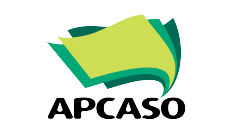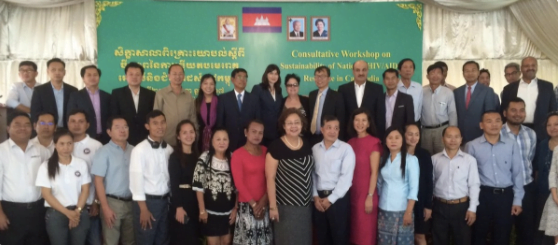by Choub Sok Chamreun, Executive Director, KHANA; APCASO Cambodia focal point
Phnom Penh -The National AIDS Authority (NAA), UNAIDS, and PEPFAR held a Consultative Workshop on Sustainability of the National HIV/AIDS Response in Cambodia last August 22, 2017. The workshop was attended by 75 people from different institutions: government, CSO, communities and private sectors. This workshop came at the right time, in which Cambodia was officially announced by UNAIDS at the recent International AIDS Conference in Paris, as one of the success countries out of the seven countries in the world achieving the three 90s. Those seven countries include: Botswana, Cambodia, Denmark, Iceland, Singapore, Sweden and United Kingdom. In the Asia pacific region, Cambodiahas the highest treatment coverage.
The PEPFAR’s tool on sustainability was used to guide the discussion in this Consultative Workshop. The tool includes: four sustainability domains (Domain 1 on Governance, Leadership and Accountability, Domain 2 on National Health System and Service Delivery, Domain 3 on Strategic Investment, Efficiency and Sustainable Financing and Domain 4 on Strategic Information) and fifteen elements. In comparing to the similar workshop that was organized in 2015, that co-convened by NAA, UNAIDS and PEFPAR, this time, we have noticed the increased score of almost all domains, except only one that is still in red, which required further works is the contribution and engagement of private sector for sustaining the HIV response.
On co-financing, the government is only focused on the treatment and this has been started since 2015 of which USD 3.7 million allocated to the life-saving treatment program and the commitment continues for the next three years: 2018-2020 of each year there will be USD 1.5 million, with addition of another USD5.1 million, as required.
Based on the National AIDS Spending Assessment (NASA), Cambodia needs between USD16 –USD20 million annually for the HIV Response and although the role of CSO/NGOs and the networks of key populations have been acknowledged as important in the AIDS response since the beginning, but until now, the funding to NGOs/CSO and KP networks for this HIV response have come from the donor communities.
As one of the key partners of the government, KHANA and our networks are very proud to see the success of HIV Response in Cambodia. We strongly believe, Cambodia will be able to achieve its plan for the HIV elimination by 2025. In the meantime, we look forward to seeing the government co-financing plan will increase year by year for Cambodia on the road towards Sustainable AIDS Response.

